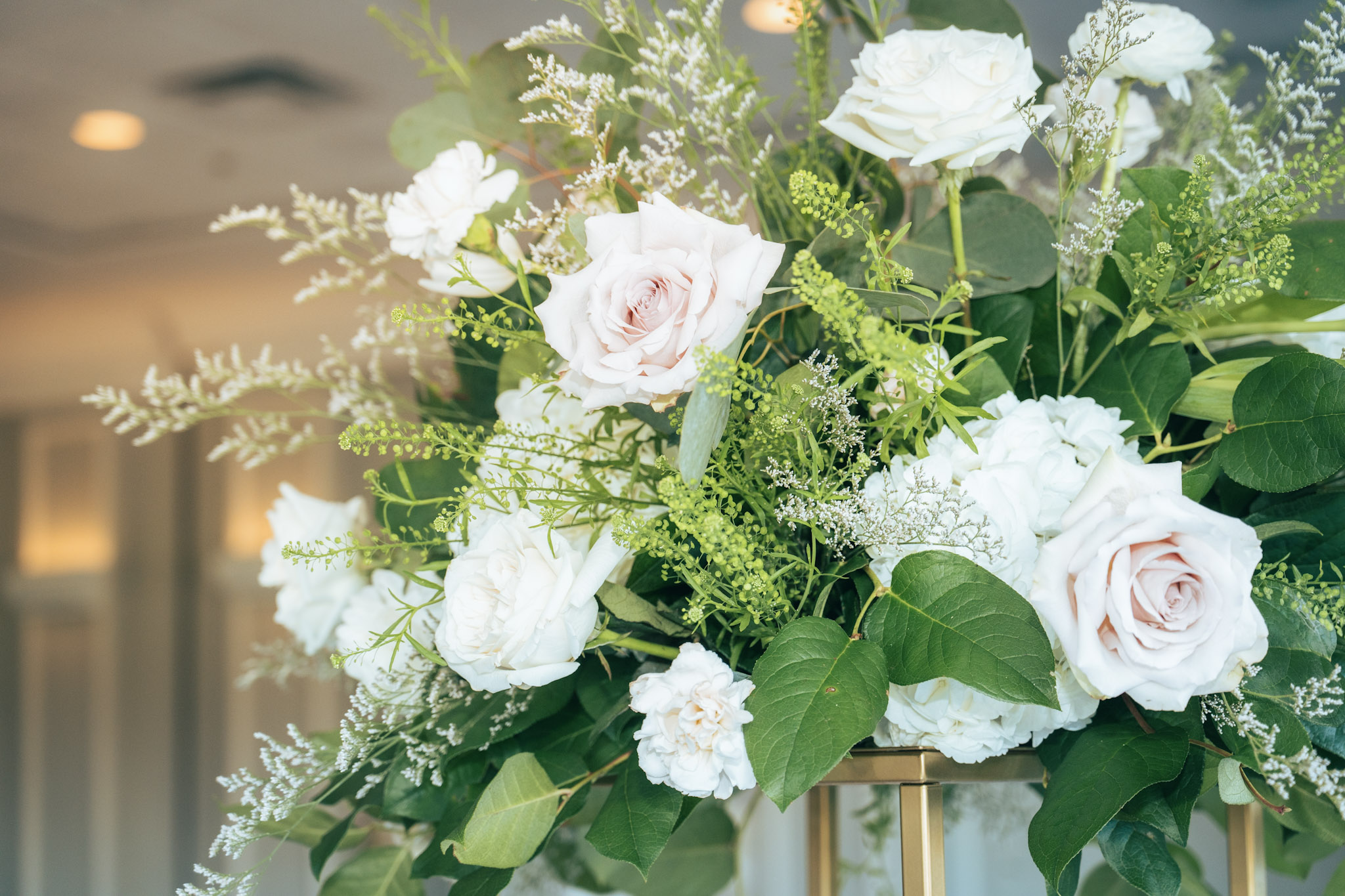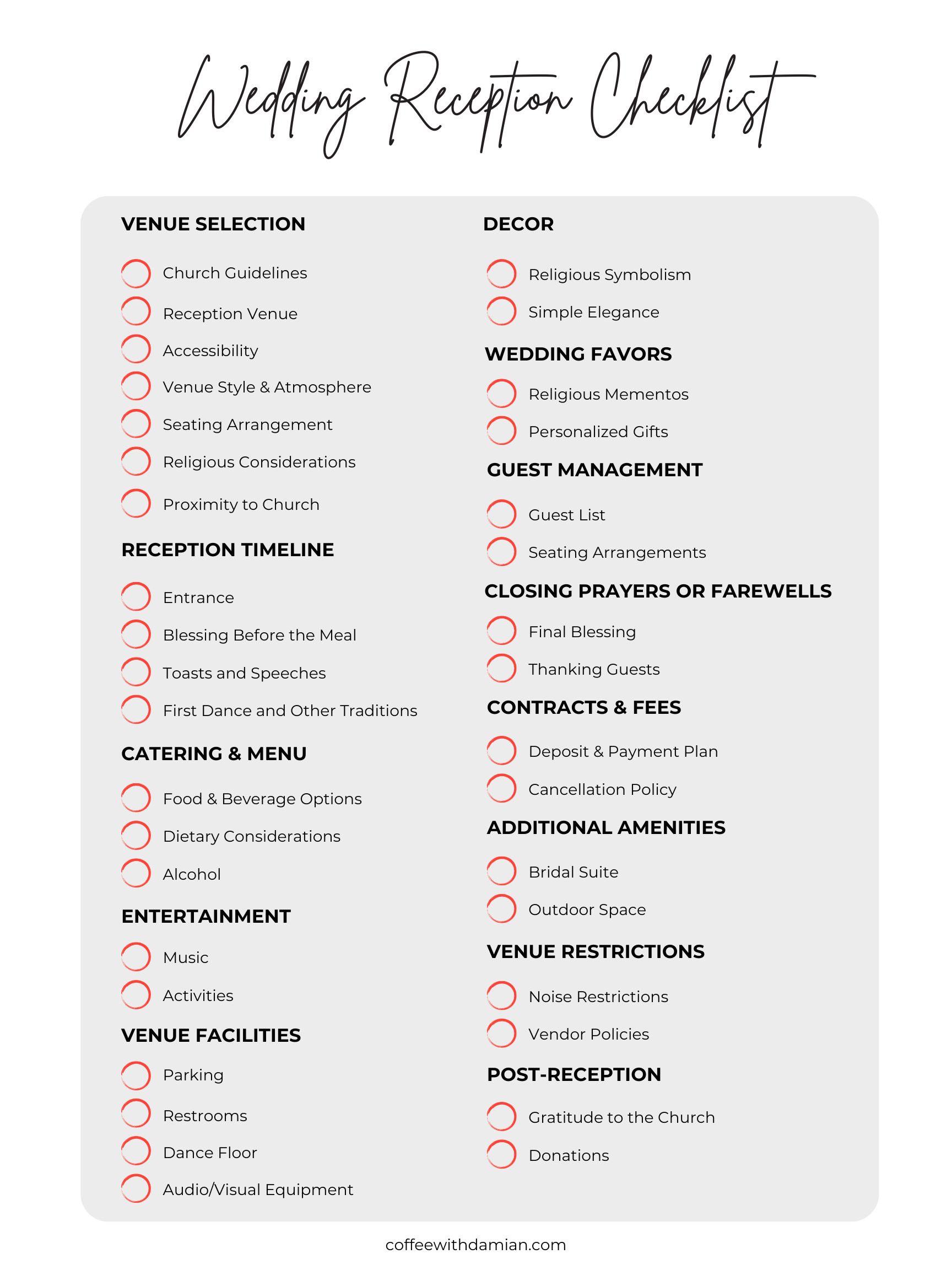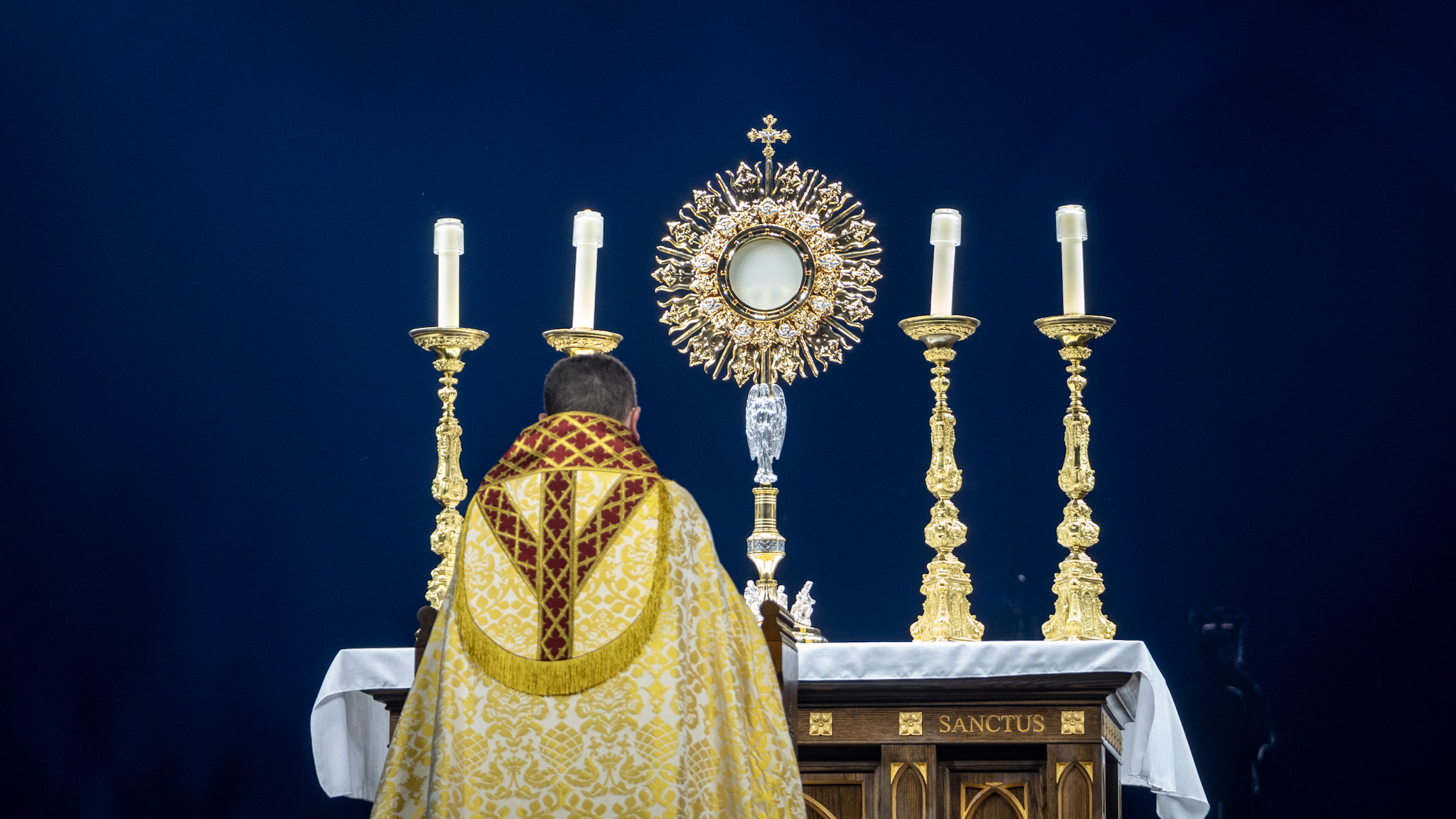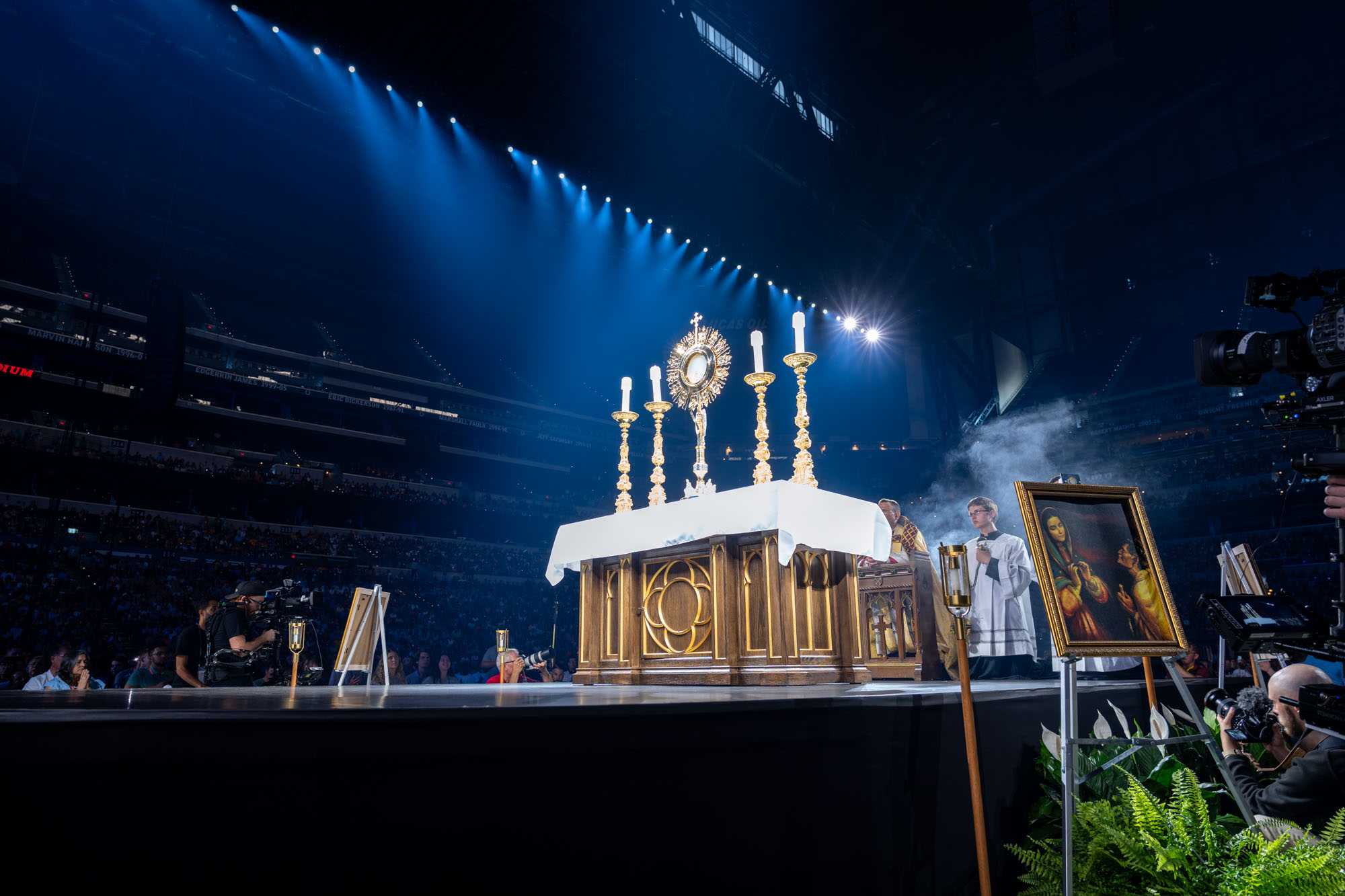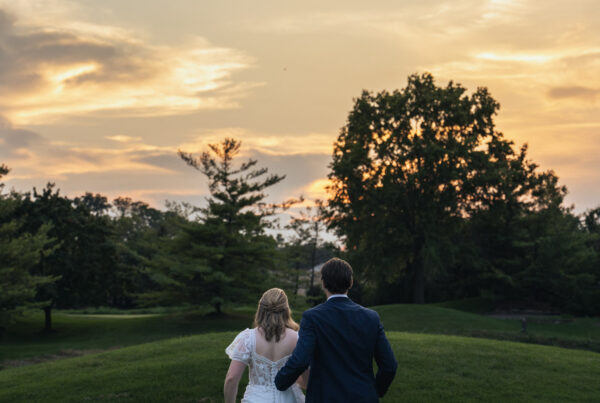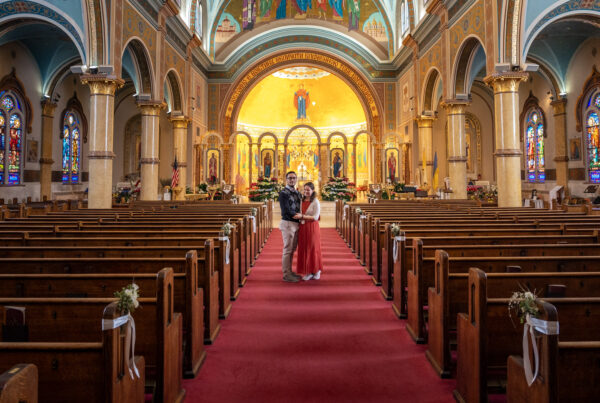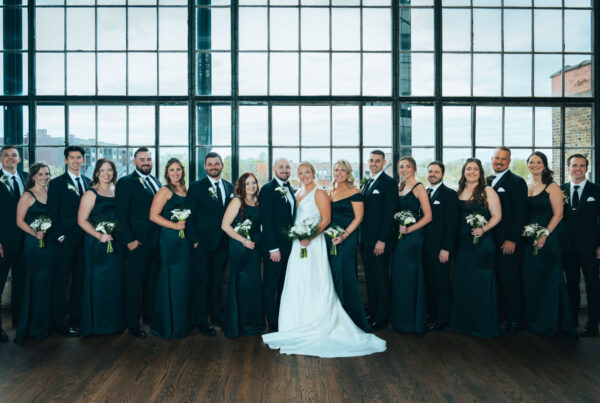A Catholic wedding reception is a celebration following the sacrament of marriage, which often involves a mixture of faith-based traditions and common wedding customs. Here’s an introductory checklist to guide you through planning a wedding reception:
1. Venue Selection
Selecting a venue for a wedding reception involves several considerations to ensure it aligns with the religious, cultural, and practical needs of the couple. To assist in directing the selection process, consider the following checklist:
Church Guidelines: Check with the church to see if there are any limitations on the reception location.
Reception Venue: Choose a location that aligns with the tone of the wedding, whether formal, semi-formal, or casual. Ensure proximity to the church.
Accessibility: Ensure that everyone can get to the location, especially senior family members.
Venue Style & Atmosphere:The venue should reflect the style and atmosphere you want, whether it’s formal, rustic, or modern.
Seating Arrangement: Verify the flexibility of seating arrangements (round tables, banquet style, etc.).
Religious Considerations:Some couples may want to incorporate religious elements in the reception (e.g., a prayer before meals). Ensure the venue allows this.
Proximity to Church: Ideally, the venue should be near the church for ease of travel after the ceremony.
2. Reception Timeline
Entrance:A receiving line or a formal reception entrance are typical following the ceremony.
Blessing Before the Meal: Arrange for the priest, deacon, or a family member to say a blessing before the meal.
Toasts and Speeches: Designate times for toasts, such as the best man, maid of honor, and parents.
First Dance and Other Traditions: Plan the first dance, father-daughter dance, and other traditions, considering Catholic values of family and unity.
3. Catering & Menu
Food & Beverage Options: Make sure the venue provides catering options or allows external caterers. Check if they can accommodate any dietary requirements.
Dietary Considerations: Be mindful of religious observances, such as meatless options for Fridays during Lent or other dietary restrictions.
Alcohol: Some Catholic receptions may limit alcohol consumption, or offer alternatives like non-alcoholic wine.
4. Entertainment
Music: Choose music that respects the tone of the wedding, avoiding anything overly explicit.
Activities: Organize meaningful activities like speeches, games, or traditions that honor the sacrament of marriage.
5. Venue Facilities
Parking: Make sure there is enough guest parking at the location.
Restrooms: Confirm the facilities are clean, accessible, and sufficient for the number of guests.
Dance Floor: If dancing is part of the reception, check if the venue has an appropriate space.
Audio/Visual Equipment: If you plan on playing music, showing a slideshow, or giving speeches, ensure the venue has the necessary equipment
6. Decor
Religious Symbolism: Consider subtle Catholic symbols, such as crosses, rosaries, or saint images as part of the décor.
Simple Elegance: Catholic weddings often value modesty and simplicity, reflecting the sacredness of the sacrament.
7. Wedding Favors
Religious Mementos: Small tokens such as rosaries, prayer cards, or personalized candles make meaningful favors.
Personalized Gifts: If you prefer non-religious favors, consider personalized items that reflect the couple’s personality.
8. Guest Management
Guest List:Make sure the church community, immediate family, and friends are included on the guest list.
Seating Arrangements: Pay attention to family dynamics and the involvement of religious figures like priests or deacons.
9. Closing Prayers or Farewells
Final Blessing: Some couples may choose to end the reception with a prayer or a special blessing from the priest before their departure.
Thanking Guests: Don’t forget to thank your guests for their presence and participation in this sacrament.
10. Contracts & Fees
Deposit & Payment Plan: Understand the payment terms, including the deposit, payment schedule, and any additional fees (e.g., overtime, service charges).
Cancellation Policy: Review the cancellation and refund policy.
11. Additional Amenities
Bridal Suite: Some venues offer a room for the bridal party to get ready or freshen up.
Outdoor Space: If you want an outdoor cocktail hour or photographs, confirm if the venue has outdoor options.
12. Venue Restrictions
Noise Restrictions: Check if there are any sound restrictions or curfews.
Vendor Policies: Some venues require the use of specific vendors (e.g., florists, caterers), so confirm if you have flexibility.
13. Post-Reception
Gratitude to the Church:Give a gift or a note of appreciation to the priest or officiant who officiated the wedding.
Donations: Consider donating to the church as a gesture of thanks for the sacramental celebration.
In conclusion, a well-planned Catholic wedding reception reflects the sacredness of the sacrament while celebrating love and unity. Every detail counts, from selecting meaningful music and toasts to ensuring the food and décor align with the couple’s values. This checklist ensures a smooth, joyous occasion that honors tradition and the newlyweds’ unique journey. Check out this article for the Wedding Ceremony Checklist!

